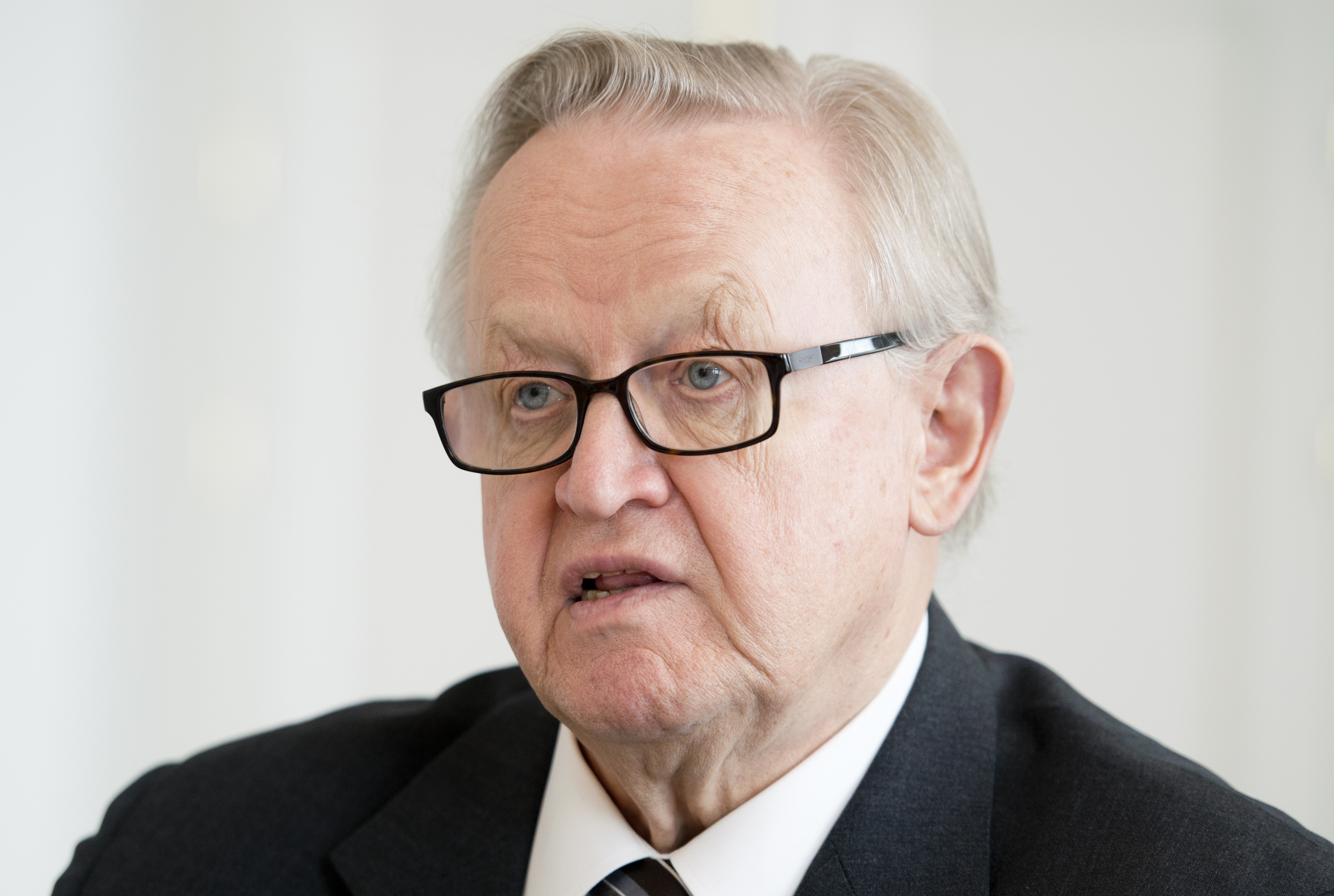2023-10-17
A Peacemaker Passes into Eternity

President Martti Ahtisaari, 2012. CC Johannes Jansson / norden.org
Yesterday, October 16th 2023, President Martti Ahtisaari died. Tenth president of Finland from 1994-2000, 2008 Nobel Peace Prize Laureate, teacher, ambassador, refugee, and peacemaker. Ahtisaari had a long career in diplomacy, serving as the Finnish Ambassador to Tanzania beginning in 1973, the UN Commissioner for Namibia from 1976-1981, Under-Secretary-General of the United Nations from 1987-1991, and worked both as an independent peace mediator as well as within the UN.
I had the honour of shaking the President’s hand in the summer of 2017 when I interned for his conflict resolution organization, the Crisis Management Initiative – Martti Ahtisaari Peace Foundation. I was awestruck to meet him — a true elder statesman, a giant of an era of optimistic internationalism. A man whose works and legacy I find myself thinking of in these conflict-filled times.
At two years old, Martti Ahtisaari and his family were forced to flee their home in Karelia by the Soviet invasion of Finland in 1939. Hundreds of millions worldwide shared his fate during WWII, prompting the creation of the United Nations High Commissioner for Refugees to help manage the subsequent refugee crisis. Sadly, world leaders aren’t making the UNHCR’s job any easier; at the end of 2022, there were 108.4 million displaced persons worldwide.
Martti Ahtisaari has always been an inspiring figure to me. He was personally impacted by the Soviet annexation of most of Finnish Karelia, something shared by relatives on both sides of my family. He rose from working-class Finland to mediate difficult armed conflicts on the world stage. He was a strong supporter of multilateralism, advocating for Finnish involvement with the United Nations and membership in the European Union. He was committed to working for global peace, not just for his nation. In his life’s work, I see a selfless dedication to a noble cause I wish to pursue in my own life. He is a man whose career and expertise guide our present-day challenges.
There are two pertinent quotes I wish to borrow from Ahtisaari’s 2008 Nobel Prize lecture:
“Peace is a question of will. All conflicts can be settled, and there are no excuses for allowing them to become eternal. It is simply intolerable that violent conflicts defy resolution for decades, causing immeasurable human suffering and preventing economic and social development.”
“In a conflict, one party can always claim victory, but building peace must involve everybody: the weak and the powerful, the victors and the vanquished, men and women, young and old.”
These were the guiding principles of Ahtisaari’s peace mediation work. Bringing violent conflict to a halt was the most crucial element of mediation, for violence harms combatants and noncombatants alike and prevents addressing the structural, societal, or economic issues behind the division. Ahtisaari insisted on involving all stakeholders in peace processes — not only the male-dominated armed factions but also civil society groups, with particular attention paid to the women impacted by conflict. In his methods, Ahtisaari was a dogged and practical mediator — a man with a pragmatic approach to the utopian ideal of peace.
In recent years, both words and deeds have hardened in conflict areas globally, and it seems commitment to the principles of the UN Charter is in decline, alongside respect for fellow humans on the other side of an arbitrary borderline. The dehumanization of the victims of invasion, occupation, and displacement continues. Be it in Gaza, Ukraine, or Nagorno-Karabakh, a real threat of the strong getting away with atrocities permeates. Worse than that, the risk of more frozen conflicts without resolution hangs heavy over the international stage. The overall atmosphere seems to favour militant strongmen. The power to end conflicts is in their hands, yet they reject peace.
In times such as these, voices advocating for peace and negotiations are often derided as naïve utopians or useful idiots working to the advantage of war criminals. I posit that quite the contrary, the peacemaker has the most mindful view of the situation. In any conflict, picking a side and cheering for their total victory is easy. It is easy to engage in wishful thinking, hoping for the annihilation of all opposition. It is much harder to admit that all conflicts end in negotiations between enemies. It is challenging to bring together parties divided by violence to work towards peace, especially if they still believe they can use violence as a shortcut to their goals. No matter how hateful it may feel, we must be ready to negotiate with our sworn enemies to end conflict. We must be mature enough to acknowledge that peace can only come through conditions all parties can agree to — otherwise, the suffering will never end.
Martti Ahtisaari believed in peace, mediation, and negotiations, and throughout his career, he took on the difficult task of convincing hostile factions to share a table, discuss, and listen. In Namibia, Indonesia, and Kosovo, Ahtisaari helped negotiate between groups divided by long histories of violence, hate, and mistrust. In many regions where he worked, hate and mistrust persist, but violence has subsided. Nobody cheering for total victory was entirely satisfied with the negotiated outcomes, but through peace negotiations, normalcy can return for the displaced, dispossessed, and unwilling combatants.
This is the heroic deed of the peacemaker.
This is the heroic legacy of President Martti Ahtisaari.
Back to the ArchiveFurther Reading


